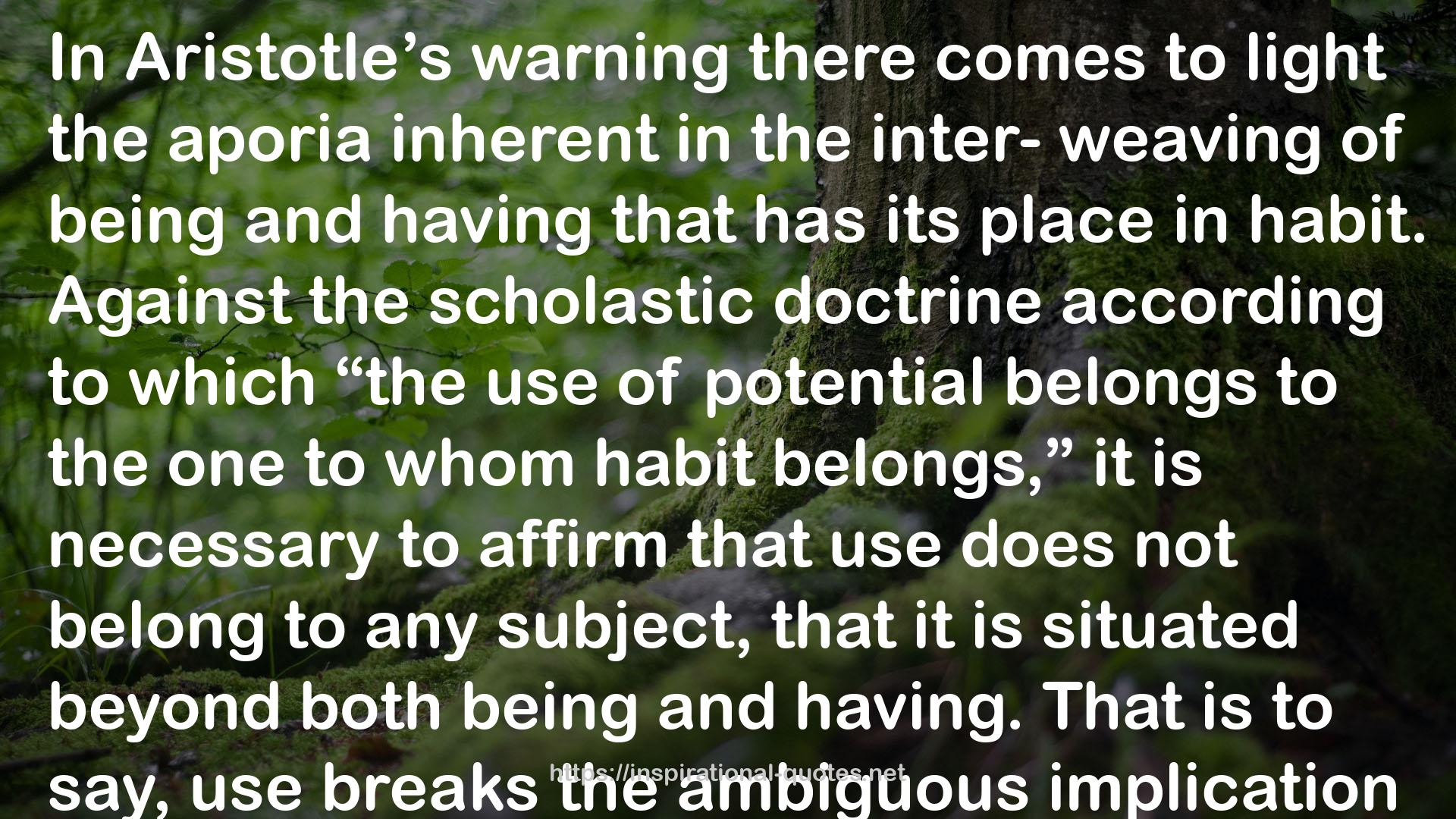" In Aristotle’s warning there comes to light the aporia inherent in the inter- weaving of being and having that has its place in habit. Against the scholastic doctrine according to which “the use of potential belongs to the one to whom habit belongs,” it is necessary to affirm that use does not belong to any subject, that it is situated beyond both being and having. That is to say, use breaks the ambiguous implication of being and having that defines Aristotelian ontology. Glenn Gould, to whom we attribute the habit of playing the piano, does noth- ing but make use-of-himself insofar as he plays and knows habitually how to play the piano. He is not the title holder and master of the potential to play, which he can put to work or not, but constitutes-himself as having use of the piano, independently of his playing it or not playing it in actuality. Use, as habit, is a form-of-life and not the knowledge or faculty of a subject.
This implies that we must completely redraw the map of the space in which modernity has situated the subject and its faculties.
A poet is not someone who has the potential or faculty to create that, one fine day, by an act of will (the will is, in Western culture, the apparatus that allows one to attribute the ownership of actions and techniques to a subject), he decides—who knows how and why—like the God of the theologians, to put to work. And just like the poet, so also are the carpenter, the cobbler, the flute player, and those who, with a term of theological origin, we call professionals— and, in the end, every human being—not transcendent title holders of a capacity to act or make: rather, they are living beings that, in the use and only in the use of their body parts as of the world that surrounds them, have self-experience and constitute-themselves as using (themselves and the world). "
― Giorgio Agamben , The Omnibus Homo Sacer
